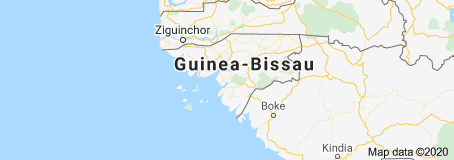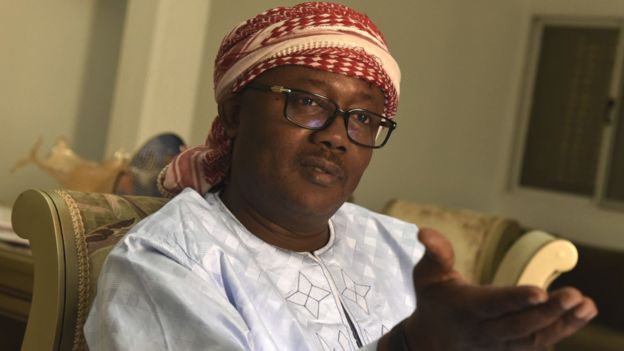
Guinea- Bissau

Brief Overview
Guinea-Bissau, one of the world’s poorest and most fragile countries, has a population of about 1.8 million. Guinea-Bissau’s Atlantic Ocean coast is composed of an archipelago, the Bijagos, of more than 100 islands. It borders Senegal to the north and Guinea to the south and east, and despite its size, is host to a large variety of ethnic groups, languages, and religions.
Political Context
Guinea-Bissau has a history of political and institutional fragility dating back to its independence from Portugal in 1974. The country is one of the most coup-prone and politically unstable countries in the world. Since independence, four successful coups have been recorded in Guinea-Bissau, with another 16 coups attempted, plotted, or alleged. In addition to military coups, frequent changes in government are another manifestation of the country’s political instability.
Outcomes of parliamentary elections on March 10 indicates a new configuration of the political picture, with no absolute majority. The results gave the African Independence Party of Guinea and Cape Verde (PAIGC) 47 ministers of parliament (MPs), followed by the Movement for a Democratic Alternative (MADEM-G15) with 27 MPs, Party for Social Renewal (PRS) has 21 MPs, APU has 5, and the United People’s Alliance (UM) and the New Democracy Party (PND) each have one parliamentarian. All political parties that disputed the 102 seats in Parliament accepted the verdict of the polls and expressed their willingness to work for the stabilization of Guinea-Bissau for the next four years.
Presidential Elections, according to the Constitution, are expected to take place by the end of 2019.

The Republic of Guinea-Bissau
Capital: Guinea-Bissau
Population: 1.8 million
Area: 36,125 sq km (13,948 sq miles)
Major languages: Portuguese, Crioulo – a form of Portuguese, African languages
Major religions: Indigenous beliefs, Islam, Christianity
Life expectancy: 47 years (men), 50 years (women)
Currency: CFA (Communaute Financiere Africaine) franc
UN, World Bank

Physical Contacts of the Presidency
Name of Minister:
Address:
Telephone:
Fax:
Physical Contacts of the Prime Minister’s Office
Name of Minister:
Address:
Telephone:
Fax:
Physical Contacts of the National Assembly
Name of Speaker of the House:
Address:
Telephone:
Fax:
Physical Contacts of the Chief Of State and Cabinet Ministers
Name of Minister:
Address:
Telephone:
Fax:
Physical Contacts of the Ministry of Interior
Name of Minister:
Address:
Telephone:
Fax
Physical Contacts of the Ministry of Justice
Name of Minister:
Address:
Telephone:
Fax:
Physical Contacts of the Ministry of Foreign Affairs
Name of Minister:
Address:
Telephone:
Fax:
Physical Contacts of the Ministry of Women’s Affairs
Name of Minister:
Address:
Telephone:
Fax:
Physical Contacts of the National Human Rights Commission
Name of Minister:
Address:
Telephone:
Fax:
Physical Contacts of the Police
Name of Inspector General:
Address:
Telephone:
Fax:
Physical Contacts of the Military
Name of Inspector General:
Address:
Telephone:
Fax:
Important Information of Key Human Rights Issues in Guinea- Bissau
Number Prisons in Guinea- Bissau
Number Prisoners in Guinea- Bissau:
Secret Detention Centres:
Police Stations in Guinea- Bissau
What are the current and ongoing human rights issues in Guinea- Bissau?
(1) Freedom of the Press
(2) Human Rights Defenders Issues
(3) Impunity
African Union (AU)
Joined the OAU in 1987
Signed the Constitutive Act of The African Union on:
Ratified:Instrument Deposited:
Signed:
Ratified:
Instrument Deposited:
Signed:
Ratified:
Instrument Deposited:
Signed: –
Ratified: –
Instrument Deposited: –
4.Protocol on Amendments to the Protocol on the Statute of the African Court of Justice and Human Rights
Signed: –
Ratified: –
Instrument Deposited: –
Signed: –
Ratified: –
Instrument Deposited: –
Signed: –
Ratified: –
Instrument Deposited: –
Signed: –
Ratified: –
Instrument Deposited: –
Signed: –
Ratified: –
Instrument Deposited: –
Signed: –
Ratified: –
Instrument Deposited: –
Signed: –
Ratified: –
Instrument Deposited: –
Signed: –
Ratified: –
Instrument Deposited: –
Signed: –
Ratified: –
Instrument Deposited: –
Signed: –
Ratified: –
Instrument Deposited: –
Signed: –
Ratified: –
Instrument Deposited: –